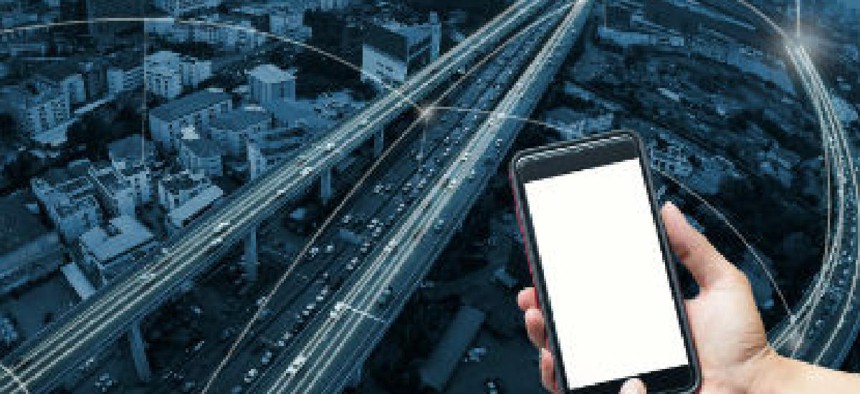Smart cities need cash

Establishing high-tech, more efficient infrastructure across America will require upfront investments, and the Transportation Department's model might be the way to get that funding right.

Pipe-fitted sensors to detect water leaks, GPS data to keep traffic flowing freely -- in the city of the future, the physical and digital will be intertwined.
But getting there will take funding, and the big question is who will pay.
"There's still a need for a killer app," said Dan Correa, senior adviser for innovation policy in the White House Office of Science and Technology Policy, at a May 20 forum.
In Correa's experience, state and local governments often don't pay to invest in cutting-edge infrastructure technology because they haven't seen an "overwhelmingly compelling" case study detailing how much they could benefit from smart infrastructure.
As the Information Technology and Innovation Foundation argued in a May 16 report, the benefits of smart infrastructure will be wide-ranging, and it could generate unforeseen productivity gains. Cities could keep cars moving by instituting automated tolling and having self-driving vehicles stick close together, for instance, while smart metering could help curtail unnecessary water and energy use.
But because those benefits are hard to predictively quantify, cities need a boost to get started.
The Transportation Department's Smart City Challenge, in which 77 cities participated, might be a healthy funding model, Correa said.
The seven Smart City Challenge finalists have each received $100,000 to flesh out their visions, and the winning city will get as much as $40 million from DOT to help digitize its infrastructure.
"The money that DOT put on the table was significant," Correa said.
It's not enough to fund a major infrastructure overhaul on its own, he added, but it should be enough to get cities over the design costs that tend to make local politicians leery of such projects.
To further fund smart infrastructure, ITIF's report called for Congress to start dedicating at least 5 percent of the Highway Trust Fund to digital infrastructure work.
Correa pointed to the Advanced Transportation and Congestion Management Technologies Deployment Program funding -- $60 million annually in the Fixing America's Surface Transportation Act -- as another good way for the federal government to funnel money to cities without smothering local innovation or overriding local needs.
If DOT makes Smart City Challenge applications public, as he expects it will, Correa said the applications will show vendors how to meet those local needs.
"A lot of these cities, believe it or not, are thinking about a lot of the same topics, struggling with the same challenges and thinking about the same opportunities for innovation," Correa said. "I think that's going to be a rich dataset for exploring where there are opportunities for shared interest [and] where outside organizations" could step in and help.


